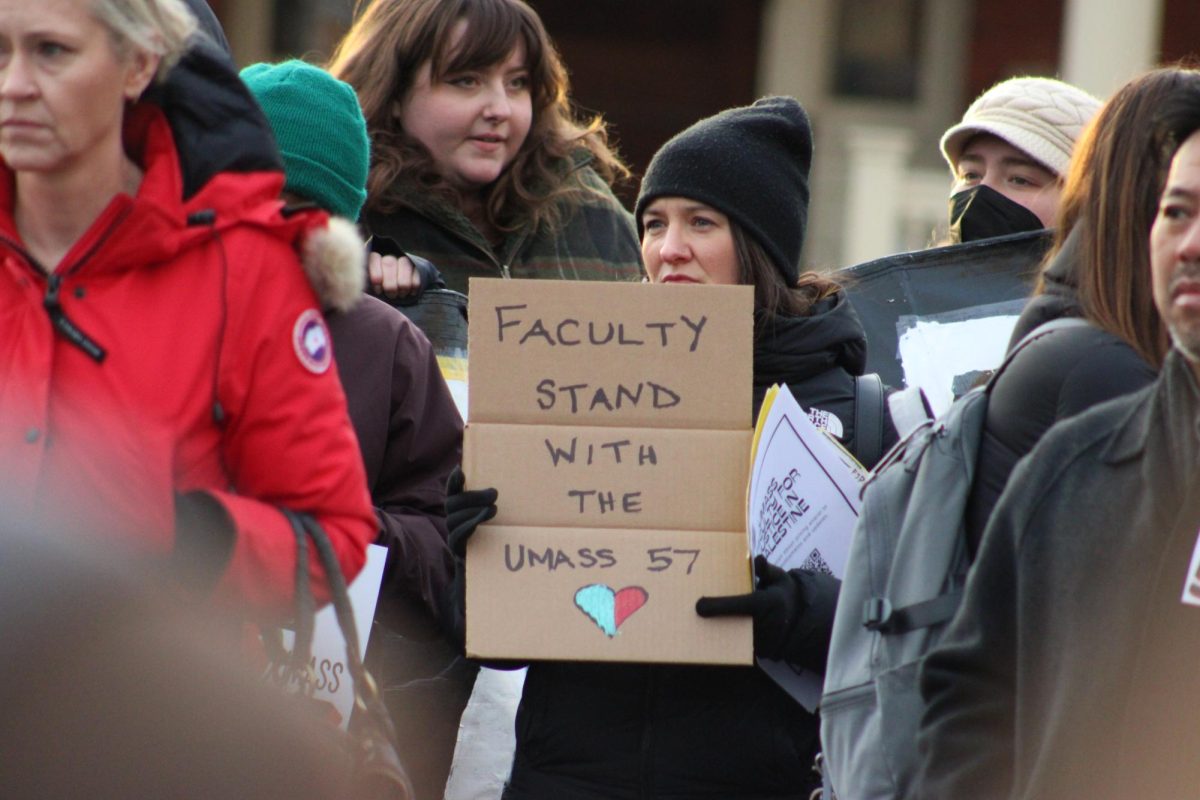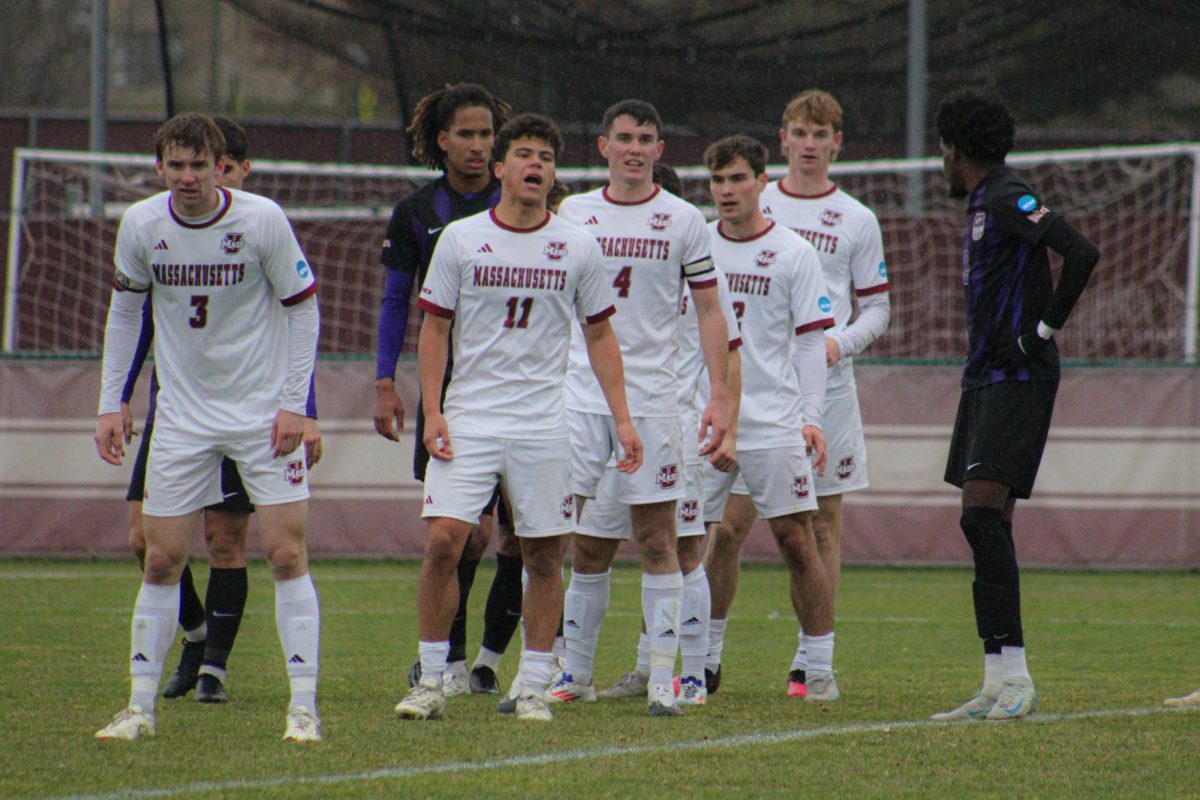On Oct. 25, University of Massachusetts Amherst police officers arrested 56 students and one staff member who were participating in a sit-in outside the Chancellor’s office. The sit-in was organized by the student groups UMass Dissenters and Students for Justice in Palestine as part of a nationwide protest against the indiscriminate bombing of Gaza, carried out by the Israeli military with U.S. support. The ongoing bombing has killed or maimed tens of thousands of Palestinian civilians, including roughly 30,000 children, according to the international group Save the Children.
At the sit-in, students requested to meet with Chancellor Reyes so he could hear their demand: that the University end its partnerships with military companies like Raytheon Technologies, which are profiting off Israel’s genocidal assault on Palestinians. Instead of meeting with the students, however, administrators sent UMass police officers to arrest them. At 6:25 p.m., campus police began removing students, zip-tying their hands and taking them to the campus police station, where many of them spent the night in holding cells. Ultimately, they were charged with criminal trespass, a misdemeanor.
The administration is also sanctioning the students and placing them on probation for staying in the administration building past 6:00 p.m., which it says constituted a violation of the Student Code of Conduct (section 4.1.5.b). This will go on their permanent records and will be visible to any job application requiring a background check. These peacefully demonstrating students engaged in no threats or harassment, no disruption of the educational mission of the University and no property destruction.
A criminal record is detrimental to a person’s future, and we are deeply upset that our students are facing this possibility at such a young age. We also want to draw attention to the fact that the University is harming these students in other ways; being put on probation means students are barred from studying abroad or serving as resident assistants, which for some means they now have no housing for next semester. The students barred from going on already-planned study abroad trips must also pay 50 percent of the cost for their canceled trips out of pocket.
For a public, land grant university to bring such repressive charges against nonviolent student protesters is alarming. It also signals discriminatory treatment.
Consider the way student protestors involved in the UMass Fossil Fuel Divestment Campaign were treated when they participated in an identical sit-in in 2016. In that case, not only did the University not sanction the students, but it also met their demands: on May 25, 2016, UMass became the first major public university in the U.S. to divest its endowment from direct holdings in fossil fuels. UMass President Marty Meehan proclaimed that he was “proud of the students and the entire University community for putting UMass at the forefront of a vital movement.” The divestment, along with the brave, principled student protests that made it happen, are now part of UMass’s promotional materials.
In both these cases, students wanted their university to divest from corporations that cause harm to human life. Why, then, was one protest celebrated by the University while the other was repressed with sanctions and criminal charges? We believe the difference lies in the specific political content of the 2023 action — namely its solidarity with Palestinians.
In January alone, three separate media outlets (The Intercept, The Boston Globe and The Hampshire Gazette) reported on the unjust treatment of UMass students protesting for Palestine. The Intercept article also establishes this treatment is part of “a broader university crackdown” on pro-Palestine speech around the country. Schools like Brandeis University and Columbia University have revoked the charters of Students for Justice in Palestine, while many other schools have canceled visits from Palestinian speakers, fired faculty for making pro-Palestinian statements and issued press releases conflating anti-Zionism with antisemitism, a dangerous tactic condemned by many Jewish groups. The UMass Amherst administration is using similar repressive tactics to clamp down on political speech about Palestine.
We bear a responsibility as educators to defend our brave students as they pursue their just cause. The day is fast approaching when institutions will have to account for their actions and public statements during this genocide. We strongly urge UMass to change course, stop the disciplinary proceedings against these students, and work to implement their demands. As in 2016, this could be a moment of pride for UMass, as it represents a similar opportunity for the University to lead the way in one of the most urgent existential struggles of our era.
Signed,
UMass Amherst Faculty for Justice in Palestine
UMass Amherst Faculty for Justice in Palestine can be contacted on their website.



















